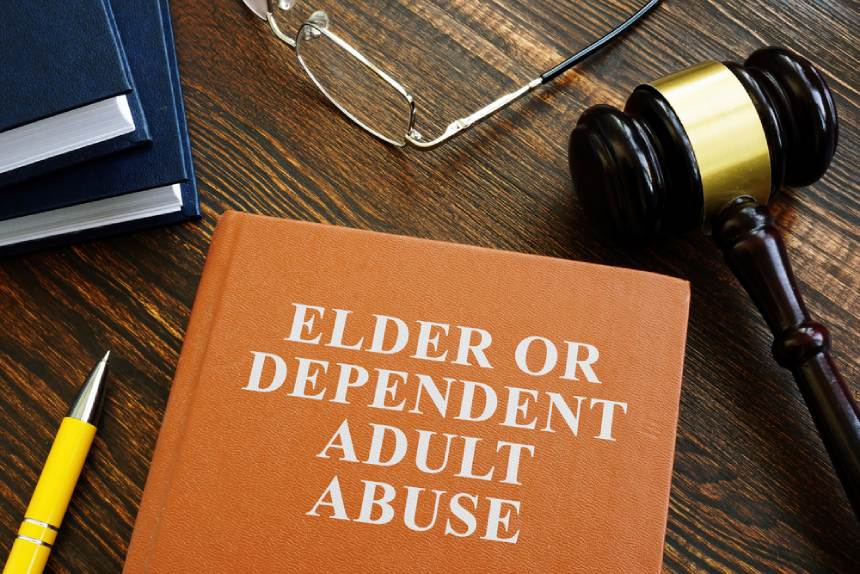We all want to ensure that our elderly loved ones receive the best possible care. However, for many families, it’s impossible to give senior relatives the daily care they need and deserve. That’s why many families rely on nursing and care home facilities in the long term. There are over 1200 care homes to choose from in California – but they are not all created equal.
Elder abuse is a serious problem across the US and CA is no exception. If you’re worried about the standard of care provided in a nursing facility, we can help. Our elder abuse attorneys are here for you whenever you need us. Below, we explain why you need legal help after an abuse incident, and what support we can offer.
What Is Elder Abuse?
First, let’s consider what we mean by “elder abuse” or “senior abuse”.
The law defines elder abuse as neglecting, exploiting, or abusing a senior citizen. This could be emotional or physical abuse, or it may even be financial. Put simply, any act – or failure to act – which causes harm to an elderly person could be elder abuse.
- In CA, senior citizens are individuals aged 65 or over.
- Elder abuse can be civil or criminal. This means it’s sometimes a civil lawsuit or it might result in criminal charges against the wrongdoer. In complex cases, it’s possible to sue in civil court and also pursue criminal charges.
The most relevant act is the Elder Abuse and Dependent Adult Civil Protection Act. The law is designed to protect individuals at a vulnerable point in their lives. As such, law enforcement, and the courts, take senior abuse cases very seriously.
Types of Elder Abuse
Elder abuse can take many forms. The most common types of elder abuse are physical abuse, neglect, and financial abuse.
- Physical abuse: Physical abuse means causing physical injury. This includes acts such as forcibly restraining the victim or hitting, pushing, or kicking them.
- Neglect: Neglect of an older person means failing to show the expected duty of care towards the victim. This includes ignoring them when they need help and failing to provide medical care.
- Financial exploitation: Financial abuse means taking, appropriating, or retaining the victim’s assets without consent. In this context, it means using a position of authority or trust to exploit the elderly victim to their advantage.
Other types of senior abuse include:
- Abandonment: In this context, abandonment means deliberately leaving the victim alone. For example, a nurse might leave or forsake a resident in a hospital, or other venue like a mall.
- Isolation: Isolation abuse means deliberately separating the victim from others. This can be as subtle as stopping them receiving mail or returning calls.
- Sexual abuse: Sexual abuse of an elder typically involves forced, unwanted sexual contact when the victim lacks capacity to consent. This could be, for example, due to a degenerative mental condition such as Alzheimers.
Recognizing Signs of Senior Abuse
While it’s not always easy to spot the signs of abuse, here are some red flags to watch out for.
- Unexplained injuries e.g. head injuries
- Unexplained vaginal or anal bleeding
- Mood changes e.g. they’re more withdrawn or fearful than usual
- Signs of malnutrition or dehydration without explanation
- Poor personal hygiene
- Unsanitary surroundings
- Sudden, unexpected changes to estate plans
- Unexplained missing assets
Our attorneys can help if you suspect elder abuse in CA.
Consequences of Senior Abuse
Our elderly relatives can suffer severely after abuse or neglect. Every case is unique – just as every senior citizen is unique. However, the most common consequences of elder abuse include:
- Financial losses
- Mental health issues e.g. distress and anxiety
- Increased fear and social isolation
- Deterioration in physical health

In the worst cases, senior neglect or abuse leads to death. If you suspect that a loved one died due to elderly neglect, our wrongful death attorneys can help.
Making an Elder Abuse Case
To make an elder abuse claim, you must show that:
- The wrongdoer (e.g. care provider) owed the victim a duty of care;
- The wrongdoer acted or failed to act in such a way that it harmed the victim;
- Under California law, the wrongdoer’s behavior amounts to elder neglect or abuse.
Proving elder abuse is not always easy. Evidence which can be helpful includes:
- Financial records e.g. bank statements
- Photographs of injuries or unsanitary conditions
- Medical records
- Witness statements
Who Can Sue for Senior Abuse?
If the victim has mental capacity, they can bring the action themselves. However, it’s more common for family members, such as children or spouses, to bring an action on their behalf.
Statute of Limitations
You only have a certain length of time to bring elder abuse claims in California. The exact time limit varies depending on the type of claim you’re making. However, there are some general guidelines.
- Personal injury: You normally have two years from the date of injury (or death) to file a civil claim.
- Financial crime: You have four years from the date of discovering the financial abuse to report it.
If you don’t file in time, there’s a risk you’ll lose your right to pursue a claim. This could mean losing out on justice for your loved ones. The best way to ensure you claim on time is to hire a senior abuse attorney as soon as possible.
Remedies in Senior Abuse Cases
The remedies available depend on the type of action you’re bringing. We can summarize them generally as follows.
Personal Injury Damages
These are the most common types of damages awarded in elder abuse claims. Personal injury damages compensate the victim for pain, suffering, and losses. Examples of personal injury damages include:
- Medical bills
- Loss of earning capacity
- Loss of companionship or consortium
- Emotional distress
- Pain and suffering
- Rehab costs
Your elder abuse attorney can explain what’s recoverable in your case.
Wrongful Death Compensation
If a senior dies due to abuse or neglect, then their loved ones can claim compensation. The damages they can claim include, but are not limited to:
- Burial and funeral costs
- Loss of comfort and care
- Loss of financial support
- Loss of income and benefits
- Medical expenses
Those with standing to claim compensation for wrongful death include children, spouses, and grandchildren.
Punitive Damages
Punitive damages are designed to punish the wrongdoer and deter others from behaving the same way. In elder abuse claims, it may be possible to claim these extra damages if you can prove fraud, malice, or oppression.
In California, it’s sometimes possible to claim enhanced damages for pain and suffering in elder abuse cases. This is possible if you can show that a deceased abuse victim experienced pain and suffering before they died.
Other Civil Damages
Under Section 1430(b) of the Health and Safety Code, nursing home residents can claim damages for Bill of Rights violations. The compensation claimable includes statutory damages and legal fees.
Criminal Penalties
As we know, elderly abuse can be a criminal offense. The penalties depend on the criminal charges but include probation, fines, and jail time.
Why You Need a Senior Abuse Attorney
You need an attorney for elder abuse if you suspect elderly neglect in CA. Here’s why.
The Law Is Complicated
Personal injury law is already complex. However, there are additional rules and processes to follow for elder abuse claims. An experienced attorney knows how to handle an elder abuse claim properly. They understand who to contact, which rules apply, and how to move your claim forward.
Care Providers May Not Cooperate
Unsurprisingly, care providers may be uncooperative in these situations. You need someone on your side who understands how to negotiate with care providers and ensure their cooperation. An experienced lawyer knows what tactics the facility may use in these cases and they know how to respond.
Gathering Evidence Is Difficult
If you’re unfamiliar with elder abuse law, it’s hard to know where to look for evidence. What’s more, care providers may make it challenging for you to access the records you need.
An experienced elder abuse attorney knows exactly how to extract the relevant evidence. They can act quickly and obtain the necessary records before they are lost, destroyed, or damaged.
Valuing a Claim Is Complex
It’s crucial that you pursue the maximum amount of compensation your relative deserves. An elder neglect lawyer can:
- Accurately value the claim
- Identify who to sue and which losses to claim
- Take your case to trial, if this is necessary to get a fair amount of damages
When you’re concerned about your elderly relatives, it’s hard to negotiate without emotions taking over. Our lawyers will treat you like family, but we also know how to stay objective and build an effective strategy. Don’t hesitate to seek legal assistance if you suspect senior abuse – that’s what we’re here for.
Retain Our Elder Neglect Lawyers Today
Your elderly family members are precious. They deserve a high standard of care so they can live with dignity and enjoy their senior years. And we’re here to help ensure that this happens.

If you’re concerned about neglect, abuse, or ill treatment, our elder abuse lawyers can help. We have deep respect for our elders, and will handle your case with the care it deserves. And since we work on a contingency fee basis, you won’t pay anything unless we win your case.
Our attorneys treat clients like family members – no legal matter is too small or complex for us to help with. For a free consultation, contact our elderly abuse lawyers today.
Disclaimer:
The content in this article is provided for general informational purposes only and may not represent the current law in the recipient’s jurisdiction. The content and information should not be construed as professional legal advice from The May Firm or the individual author, nor is it intended to be a substitute for legal counsel on any subject matter. Any and all information included in, or accessible through, this article should not be used to act or refrain from acting without the appropriate legal or other professional advice from a lawyer licensed in the recipient’s appropriate jurisdiction. Any reliance you place on such information is strictly at your own risk.



